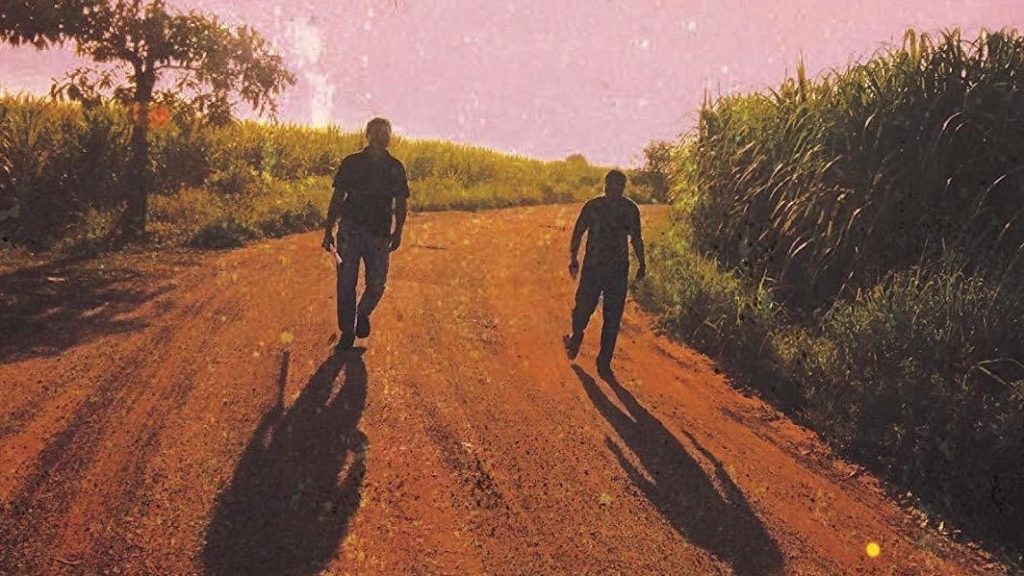Written by Abi Rhee-Vanderwall, Hope College Creative Writing and Communications major
On Wednesday, March 20th, students and faculty at Hope College gathered for the newest installment of the Jack Ridl Visiting Writers Series. Margaret Voetberg commenced our night, welcoming the brilliant southern noir author S.A. Cosby and the profound, sensual poet James Fujinami Moore.
Rebekah Cook had the honor to introduce James Fujinami Moore, stating in her introductory speech that “Moore’s poetry doesn’t shy away from the indecent.” As Moore took the stage, we’d soon see what Rebekah meant.
Moore read seven pieces of poetry, most of which came from his debut collection Indecent Hours. His poems had a variety of subject matters, ranging from sex, to mourning, to his experiences as an Asian American. One thing stayed constant throughout Moore’s works: the sincerity and rawness behind every word.
In his poem “Notes on The New Year,” Moore says, “The dead come back to us like rain.” The gentle nature of this line contrasts the sharp, almost dangerous nature of a poem circulating gun violence and Asian hate. Seeing this, there is a careful way he goes about crafting his words, one that deeply resonates with the readers while still staying true to the uniqueness of his world.
Moore continued to share pieces of himself with the audience, stating, “I believe that your writing can reveal more about you than you might want it to.” When reading his work, you can see how Moore might feel this way, especially in poems like “Third Date” and “If I Should Die Eaten by A Pomeranian.”
After Moore completed his reading, Ali Wintermute graced the stage to introduce S.A. Cosby. He appeared unassuming in a black baseball cap, and yet only S.A. Cosby could describe blood as “rose colored calligraphy.” As he took the floor to read from his novels All Sinners Bleed and Razorblade Tears, S.A. Cosby introduced us to a world in the south that only he could share.
He started off his time with us by reading from All Sinners Bleed, a story that follows former football star turned police chief Titus Crown as he battles with secrets in his town that threaten to break out. After a schoolteacher is killed in a shooting and the shooter is killed by Titus’ deputies, he discovers that things run far deeper than he once thought.
After reading the prologue and first chapter, it was evident that Cosby has an innate ability to craft deep, webbing stories that are able to capture the readers on every page. Despite the overall thematic scheme of violence, Cosby’s work is nothing short of beautiful. In a quote from chapter one, Cosby describes the residual mourning of one of his characters, saying that the memories of a lost loved one “wrung heartache from him like water from a washcloth.” It’s notions like this that remind the audience of the true passion and realness behind Cosby’s writing. He speaks truthfully from his soul and remains dedicated to crafting a story that not only suits the needs of his readers but quells a type of pain in them as well.
After Cosby finished reading from his pieces, Moore joined him on stage to answer questions from a waiting audience. One member asked the authors about the challenge of addressing violence in their work. “All violence is a confession of pain. I believe that almost all violence—the violence I write about—is consequential,” answered Cosby. In another question regarding the topics of their work, the authors were asked what questions they address in their pieces. Moore answered, “I think it’s important to ask the questions you don’t necessarily need the answers to. It can guide you to the principles you’re actually looking for.” We closed the night with the opportunity to buy books and meet the writers. Overall, themes of every kind were addressed, and many members left this installment deeply moved. How honored we are to have closed this season out with these wonderful men, and how grateful we all should be to have writers like them to answer the important questions we don’t ask but desperately need.
